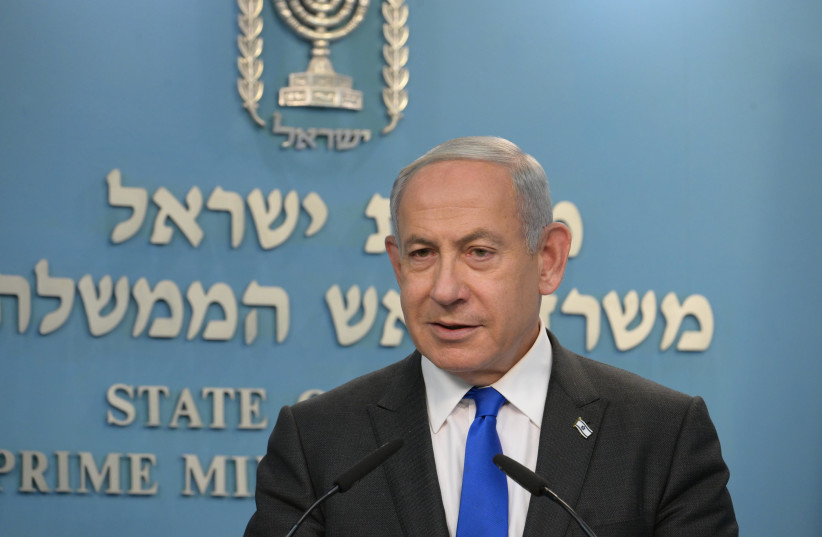Netanyahu, Smotrich announce plan to combat cost of living in Israel

The new government’s plan includes utility price cuts, boosted stipends and stable gas price in order to stop the rising cost of living in Israel.
Property taxes (arnona) will be frozen for a year in order to combat the continually increasing cost of living in Israel.
This was announced during a live-streamed presentation held by Prime Minister Benjamin Netanyahu and Finance Minister Bezalel Smotrich, wherein they explained the new government’s plan to deal with rising prices in the economy, which “has entered an inflationary spiral,” according to the premier.
Expected cuts in the cost of living prices
Also included in the government’s plan is the reversal of the latest increase in gas prices (a net reduction of 10 agorot), and a cut of 70% in the price of electricity and water.
As well, those entitled to disability stipends through the "heating grant" will receive NIS 200 of their allotment now, instead of having to wait until October when it is typically distributed.
As well, those entitled to disability stipends through the "heating grant" will receive NIS 200 of their allotment now, instead of having to wait until October when it is typically distributed.
“Since the government, I lead puts... the war on the cost of living at the top of its priorities, we are not waiting. Tonight we are announcing a series of first steps to fight the generators of inflation: electricity, water, fuel and property taxes,” said Netanyahu. “These steps will immediately reduce the monthly expenses of every family in Israel, and will do another thing: they will slow down the pace of price increases and start turning the wheel backward.”
Smotrich noted that “This is an immediate emergency plan, and within the framework of the state budget, with God's help, we will formulate big steps and a series of deep reforms.”
Sure, maybe this one will work
Rising prices are nothing new in Israel, nor around the world: the entirety of 2022 saw a steady rise in the prices of food, utilities, housing and other necessities. Over the course of the year, Liberman made several attempts to stem the gradually increasing cost of living, implemented reduced import tariffs on many common goods, increased compensation for low-wage workers and small business aid packages.
“As we promised, we continue to act in favor of increasing the free income of the citizens of Israel and reducing expenses,” Liberman said during his own economic plan presentation in March.
Despite those efforts, prices in the holy land have continued to climb, largely due to decreased resource availability due to the war in Ukraine and lingering supply chain disruption from the pandemic, experts have suggested.
Smotrich has spared little time in taking action in Israel’s financial realm. Less than a day after taking his position as minister, he moved to cancel two controversial taxes that were set in place by Liberman in late 2021 and early 2022: an increased tax on disposable plastic utensils, and an increased tax on sugary soft beverages.
The finance minister also signed a decree on Sunday withholding NIS 139 million in tax revenue from the Palestinian Authority, stating that “as long as the Palestinian Authority encourages terror and is an enemy, I have no interest for it to continue to exist.”
Jerusalem Post Store
`; document.getElementById("linkPremium").innerHTML = cont; var divWithLink = document.getElementById("premium-link"); if (divWithLink !== null && divWithLink !== 'undefined') { divWithLink.style.border = "solid 1px #cb0f3e"; divWithLink.style.textAlign = "center"; divWithLink.style.marginBottom = "15px"; divWithLink.style.marginTop = "15px"; divWithLink.style.width = "100%"; divWithLink.style.backgroundColor = "#122952"; divWithLink.style.color = "#ffffff"; divWithLink.style.lineHeight = "1.5"; } } (function (v, i) { });


